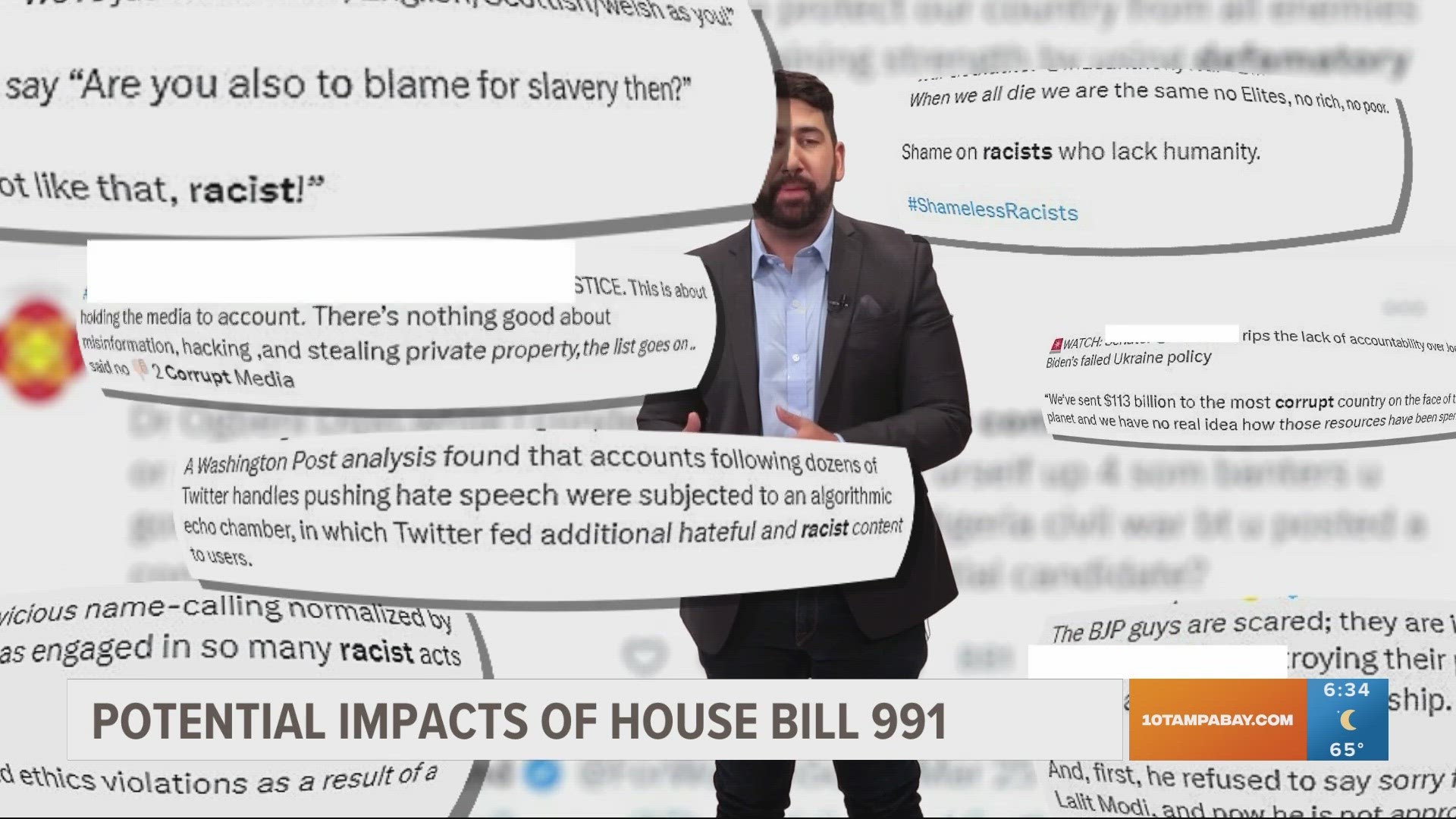TALLAHASSEE, Fla. — Two bills moving through the Florida Legislature aim to make it easier to sue journalists for defamation, but legal experts say it’s more than just reporters who would be impacted.
Supporters of House Bill 991, which just passed its first committee, say it's meant to hold journalists accountable. “This bill could be titled Journalism 101,” sponsor State Rep. Alex Andrade (R-Pensacola) said during a recent committee meeting.
Though legal experts say if the bill becomes law, its impact would be even more wide-reaching, opening up everyday people to frivolous lawsuits over what they post online.
“It puts a thumb on the scale, I would say in favor of people bringing defamation lawsuits against anybody,” Jim Lake, an attorney who specializes in defamation cases with Thomas & LoCicero in Tampa says.
“It’s not so much a change that singles out any one industry or another, it writes so broadly, that would help everybody file a lawsuit and pursue a lawsuit, who wanted to,” Lake added.
That doesn't mean their case would necessarily win, but Lake believes it would make Florida a destination for defamation suits.
"The way this law is written, it allows a claim to be brought anywhere in the state for something that's published on the internet, and it talks about suing over any one publication or utterance on the internet so could be as small as one comment that gets someone dragged into court."
Meaning anytime you post, comment or share, you could potentially open a can of worms. Even former President Donald Trump could see a lawsuit in Florida over his recent post about the Manhattan DA who's investigating him.
Trump called DA Alvin Bragg, a “racist in reverse,” in a post on Truth Social.
“If this district attorney wanted to sue over being called a racist, this law would allow him to sue anywhere in Florida, because it’s on the internet, the law would assume he was harmed as a result and if he prevailed in that case, the law would entitle him to whatever damages were decided, plus $35,000, plus his attorneys' fee," Lake added.
First Amendment advocates have spoken out against this bill and a similar one moving in the Florida state Senate.
Its sponsor, State Rep. Alex Andrade told the Washington Post concerns are overblown, saying in a committee meeting, this bill provides opportunities for people who are rightfully harmed by false statements to seek justice.
Santa Clara University School of Law professor Eric Goldman says this bill isn't pro-Democrat or pro-Republican — he argues it's anti-speech. HB 991 would create a presumption that a statement by an anonymous source is presumptively false for purposes of defamation.
The bill also discusses publishing untrue allegations "that the plaintiff has discriminated against another person or group because of their race, sex, sexual orientation, or gender identity constitutes defamation per se."
Gov. Ron DeSantis in February hosted a livestreamed "panel discussion on defamation" touting his plan to make it easier to bring defamation lawsuits against the media or people who post things on the internet about public officials and employees, according to The Associated Press.
"You smear somebody, it’s false, and you didn’t do your homework, you’re going to have to be held accountable for that," DeSantis said while concluding the event. "Hopefully, you’ll see more and more of that across the country."

